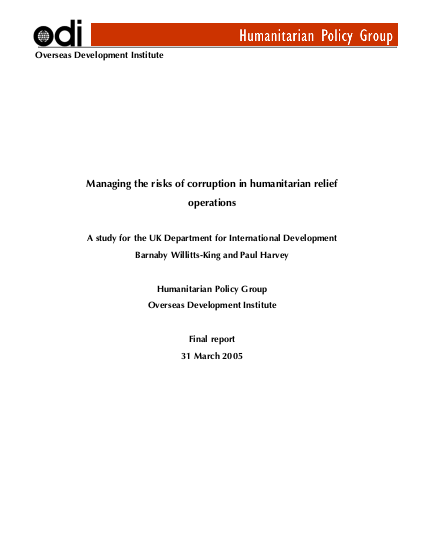
This report uses the Transparency International (TI) definition of corruption as
‘the misuse of entrusted power for private gain’. This is a broad definition which
encompasses a wide range of situations, but there is no single definition which
captures every instance of corruption, and some activities might be seen as
corruption by some agencies, but not by others . The World Bank, for
example, emphasises the misuse of public office and its detrimental effect on
economic development. In failing states or conflict situations, however, the
public sector is often threadbare; power is not entrusted, but taken by force.
Corruption in relief contexts exists against a backdrop of the risks of diversion of aid and debates about how to minimise the possibility of aid fuelling conflicts; there are dilemmas in balancing these risks against the need to respond to humanitarian imperatives. There is an established body of literature on the diversion of aid by political and military forces, as well as on the inefficiencies of the aid delivery system. Corruption, diversion and inefficiency are closely related.